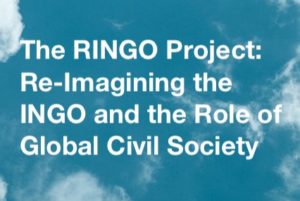Moses Isooba, head of the Uganda National NGO Forum and a member of Re-Imagining the International NGO (RINGO), an initiative launched by Rights CoLab, on why language plays a key role in upholding current power structures.
Note: This article was originally published by Devex on July 15, 2024
There are increasingly strong calls to advance locally led development — the process of shifting power and resources to the communities where development work takes place. However, progress has been limited despite ambitious promises, including at the World Humanitarian Summit in Istanbul in 2016.
In 2021, the U.S. Agency for International Development set the ambitious target to channel a quarter of its funds toward local organizations, but new data from June reveal that just 9.6% of the agency’s eligible dollars made it to local groups last year, down from 10.2% the year prior.
While others are looking to not only shift resources but also staff — the United Nations Population Fund is moving a quarter of staff positions from its New York headquarters to Nairobi by 2025, and Oxfam wants to ditch the term “headquarters” all together — the structural inequalities in the aid system can only be addressed by building trust, explained Moses Isooba, the executive director of the Uganda National NGO Forum, an independent national platform for NGOs in Uganda. “What needs to be addressed is the inherent bias about treating southern [development] actors as a risk,” he said.
Read the complete interview here
